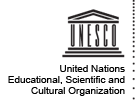Effective PhD Supervision – Chapter Two – Guidelines for Supervisors
It is well recognised that despite the fact that support for postgraduate students at various levels is available in South Africa, a large and unacceptable proportion of such postgraduate students do not complete their studies. Some of the reasons for this have been ascribed to:
– A lack of understanding by the students and a failure to communicate by the institution as to the standard of work required for a particular degree
– Allocation by the institutions of supervisors who are generally not interested in the topic but are forced to supervise as part of their academic commitments
– Difficulties in conceptualising the programme the student is in and a lack of clear guides – generally replaced by vague requirements
– Differences between supervisors and their approaches to supervision
– Lack of supervisory policy or standards at the departmental, faculty or institutional level
– A general lack of training for supervisors – institutions do not have a formal or informal supervisor training programme
– Time pressures and interruptions placed on supervisors by their institutions, which prevent optimal interaction with postgraduate students
– Poor record-keeping concerning supervision – supervisors do not formalise their interactions with students
– Unclear or the absence of any agreements between supervisors and students and the institution.
Effective PhD Supervision – Chapter Three – Guidelines for Mentors
The supervision of postgraduate students generally follows institutional guidelines such that policies or procedures (sometimes confusing and contradictory) are in place to produce PhD graduates. From the students’ perspective, on the other hand, the path leading to the doctorate is unclear and filled with all kinds of hurdles and uncertainties. Most importantly, and especially at the early stages of the degree, support at all levels is a necessity.
The concept of mentoring is a universal phenomenon and certainly not a new one! In almost all cases the challenges faced by post-graduate students appear to be dealt with more effectively, or rather with a greater sense of personal satisfaction, when such individuals have someone to rely on. During the course of their postgraduate studies, and particularly in the early stages, students are required to make an intellectual and, more importantly, an emotional leap from being Bachelor’s and Master’s students to becoming PhD candidates. In some instances, as with individuals with professional qualifications, the primary degree is earned without much exposure to formal instruction in research, ethics and knowledge of the requirements for proceeding towards a doctoral qualification. Primary degree supervision typically consists of structured courses, with the student enjoying direct instruction and regular contact with the team of lecturers concerned. PhD candidates are, however, expected to be more independent, self-sustaining, with little access to their supervisor and less structured than in their prior degree. For the PhD student, contact and feedback with supervisors depend very much on the rate of progress of the individual student concerned and on the commitment of the supervisor to the process.
Effective PhD Supervision – Chapter Four – Coaching: Charting your own Path
The PhD researcher is immersed in a ‘writing-centred pedagogy’ that requires critique and encouragement from experienced researchers. While writing is central to the research process, so is thinking, imagining and relating. The learning and teaching strategies needed in supervision are varied and complex – even ‘chaotic’! These supervision interactions ideally stretch and support the PhD researcher, whilst enriching and expanding the world of the supervisor. Painted with such broad brush strokes the enterprise promises colour and boldness – but it also requires finesse, detailed attention and precision of focus.
An interesting parallel to the qualities needed in the research journey are those needed by accomplished scientists. Fensham, in interviews with leading scientists in China, distinguishes the characteristics needed to succeed in both independent research and in science. These include (in order of priority): creativity, personal interest in the topic, perseverance, desire to inquire, ability to communicate, social concern and team spirit. It is particularly these qualities, on the one hand, that mentoring and coaching focus on. Supervision, on the other hand, takes greater responsibility for the formal managing of the degree process, quality checking and teaching. Whilst workshops and programmes for PhD students usually provide formal training in the academic content towards thesis production, mentoring and coaching fosters qualities essential in a scientist, researcher and intellectual. A holistic approach takes into account the complexity of a large research project.
Effective PhD Supervision – Chapter Five – The Relationship between PhD Candidate and Supervisor
 5.1 Styles of Supervisor-Candidate Relationships: A typology
5.1 Styles of Supervisor-Candidate Relationships: A typology
5.1.1. Introduction
Every PhD supervisor is different and every PhD candidate as well. Hence, relationships between a supervisor and a PhD candidate are full of idiosyncrasies and peculiarities. Many are the stories about strange professors, with odd habits, and full of eccentricity. And among professors, memories of strange misunderstandings with their PhD candidates form part of their discussions over drinks. However, there is order in this chaos. In a number of SANPAD supervisory workshops in South Africa, and in Ceres training courses in the Netherlands, we experimented with an approach in which a typology was designed of possible relationships. Participants in these workshops were then first asked to position their own relationship with their former PhD supervisor in this typology. As a second step they were asked to do the same with each of their prior and current PhD supervision relationships. And, indeed, there appeared to be order in the chaos, but with a lot of comments. Let us first look at the typology as such.
5.1.2 Styles of Supervision
In discussing styles of supervision there are the following important variables:
– Relationship behaviour: businesslike or personal
– Task behaviour: commitment (more/less) and product or process orientation
Businesslike behaviour can be defined as a type of relationship where first and foremost supervisor and PhD candidate focus on their work: the research to be done, the research design, the progress of analysis, writing and publication strategies. Personal elements are less important, and in extreme cases, regarded as completely irrelevant or taboo for discussion.
Personal behaviour is the opposite: the focus is on personal matters, and in extreme cases work is hardly ever mentioned. The supervisor knows, or tries to know everything about the personal circumstances and characteristics of the PhD candidate, and in meetings personal affairs and emotions get a lot of attention. Often there is or develops a relationship of personal or family friendship, sometimes progressing further than that.
Effective PhD Supervision – Chapter Six – A Holistic Approach to PhD Support
 SUPERVISION, COACHING and MENTORING
SUPERVISION, COACHING and MENTORING
6.1 Mentoring and Coaching: Complementary Resources
‘Would you tell me, please, which way I ought to go from here?’
‘That depends a good deal on where you want to get to,’ said the Cat.
‘I don’t much care where –’ said Alice.
‘Then it doesn’t matter which way you go,’ said the Cat.
6.2 Comparing Supervision, Coaching and Mentoring in Practice
6.2.1 Gaining competence
Supervision of a PhD candidate has been described in terms of models, personality, formal institutional structures and contract agreements. Supervision is often learnt through experience: one’s own – from having been supervised, from external examination of theses, from serving on post-graduate committees, from participating in PhD student-presentation sessions, from sitting in on a PhD student’s advisory committee, from serving on post-graduate committees, from co-supervision with a more experienced academic and from supervising different students. Supervision skills are also developed from workshops on supervision and through reading ‘how-to’ books or research into PhD work. A supervisor also draws on a certain amount of pedagogic content knowledge as well as, of course, discipline content knowledge.
Effective PhD Supervision – Chapter Seven – Bibliography and Recommended Reading
 The books, journals and related resources listed below have played an important role in the compilation of this handbook and many have proven to be invaluable in our day-to-day interactions with postgraduate students.
The books, journals and related resources listed below have played an important role in the compilation of this handbook and many have proven to be invaluable in our day-to-day interactions with postgraduate students.
Argyris, Chris; Schön, Donald A. (1974) Theory in practice: Increasing professional effectiveness. San Francisco: Jossey Bass. ISBN 0875892302, 9780875892306
‘This book is a landmark in two fields. It is a practical guide to the reform of professional education. It is also a beacon to theoretical thinking about human organizations, about their interdependence with the social structure of the professions, and about theory in practice.’ — Journal of Higher Education.
Badenhorst, Cecile. (2006) The Scribe’s Journey. New Voices Publishing, Cape Town, South Africa. ISBN-13: 978-1-920094-30-0
The Scribe’s Journey contains over 150 writing exercises. Each one is designed to take you away from the world of to-do lists, priorities and products, and into the realm of possibilities, exploration and colour. The writing activities will tap into your creative source and begin to free your mind from the restrictions and limitations which so often accompany writing tasks. Whether you write reports at work, or poetry, or family histories, this book will help you write with a fresh eye.


